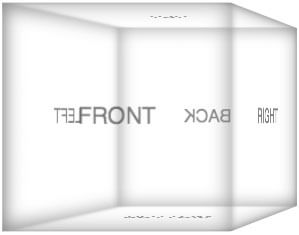DOMDocument and UTF-8 Problem
A few weeks back I shared how I used PHP DOMDocument to reliably update all image URLs from standard HTTP to HTTPS. DOMDocument made a difficult problem seem incredibly easy ... but with one side-effect that it took me a while to spot: UTF-8 characters were being mutated into another set of characters. I was seeing a bunch of odd characters like "ãç³" and"»ã®é" all over each blog post.
I knew the problem was happening during the DOMDocument parsing and that I need to find a fix quickly. The solution was just a tiny bit of code:
// Create a DOMDocument instance
$doc = new DOMDocument();
// The fix: mb_convert_encoding conversion
$doc->loadHTML(mb_convert_encoding($content, 'HTML-ENTITIES', 'UTF-8'));
After setting the character set with mb_convert_encoding, the odd characters vanished and the desired characters were back in place. Phew!
![Create a CSS Cube]()
CSS cubes really showcase what CSS has become over the years, evolving from simple color and dimension directives to a language capable of creating deep, creative visuals. Add animation and you've got something really neat. Unfortunately each CSS cube tutorial I've read is a bit...
![5 More HTML5 APIs You Didn’t Know Existed]()
The HTML5 revolution has provided us some awesome JavaScript and HTML APIs. Some are APIs we knew we've needed for years, others are cutting edge mobile and desktop helpers. Regardless of API strength or purpose, anything to help us better do our job is a...
![Checkbox Filtering Using MooTools ElementFilter]()
When I first wrote MooTools ElementFilter, I didn't think much of it. Fast forward eight months later and I've realized I've used the plugin a billion times. Hell, even one of the "big 3" search engines is using it for their maps application.
![Translate Content with the Google Translate API and JavaScript]()
Note: For this tutorial, I'm using version1 of the Google Translate API. A newer REST-based version is available.
In an ideal world, all websites would have a feature that allowed the user to translate a website into their native language (or even more ideally, translation would be...





instead of converting the input string from your encoding into UTF8 you can also tell the DOMDocument with the 2nd arg in which encoding your string is.
http://php.net/manual/en/domdocument.construct.php
This should save you some cpu-cycles and reduce memory consumption.
Awesome, thank you for pointing this out!
Actually I was already doing
and still getting weird characters like  – adding your fix did the trick for me, thanks David!
It turns out that specifying the encoding argument when you instantiate a
DOMDocumentdoesn’t encode the contents, just sets the document’s header – see this comment http://php.net/manual/en/domdocument.construct.php#78027. It probably wasn’t necessary to specifyUTF-8anyway, as that’s the default. So something like David’s fix is needed to change any unwanted encodings in the content.Thanks for the tutorial. It really saved time.
Thank you very much you life saver
Thank you very for this :D
Caught this bug too, even after instantiating it properly
Awesome, character encoding has always been a pain the a.
Thank you very much David.
This helped me a lot. because I had bad characters in wordpress the_content.
This method removed special characters pasted from word document.
:D
Thanks a lot, David.
I was about to pull my hair out :D
Whilst this sorts out the worst of the character nasties, I am still seeing instances where an apostrophe appears as a question mark.
The character on the input end is ’ … it appears as ?
Somtimes I think what I may be experiencing is the crime of taking articles which originated in Microsoft Word, or maybe even Google Docs – ie. curly apostrophe. But I’m not sure – there are pieces of text that I’ve written out directly, which I’m not sure could explain this problem.
It’s frustrating that I can’t iron this out. They appear just fine if I disable my code which uses DOMDocument.
No code that I can find online (not MS Word character-conversion functions https://stackoverflow.com/questions/1262038/how-to-replace-microsoft-encoded-quotes-in-php and not DOMDocument modifiers) seems to work.
In PHP8.2, mb_convert_encoding is deprecated. Instead of
I am now doing this:
Has been working fine in my tests